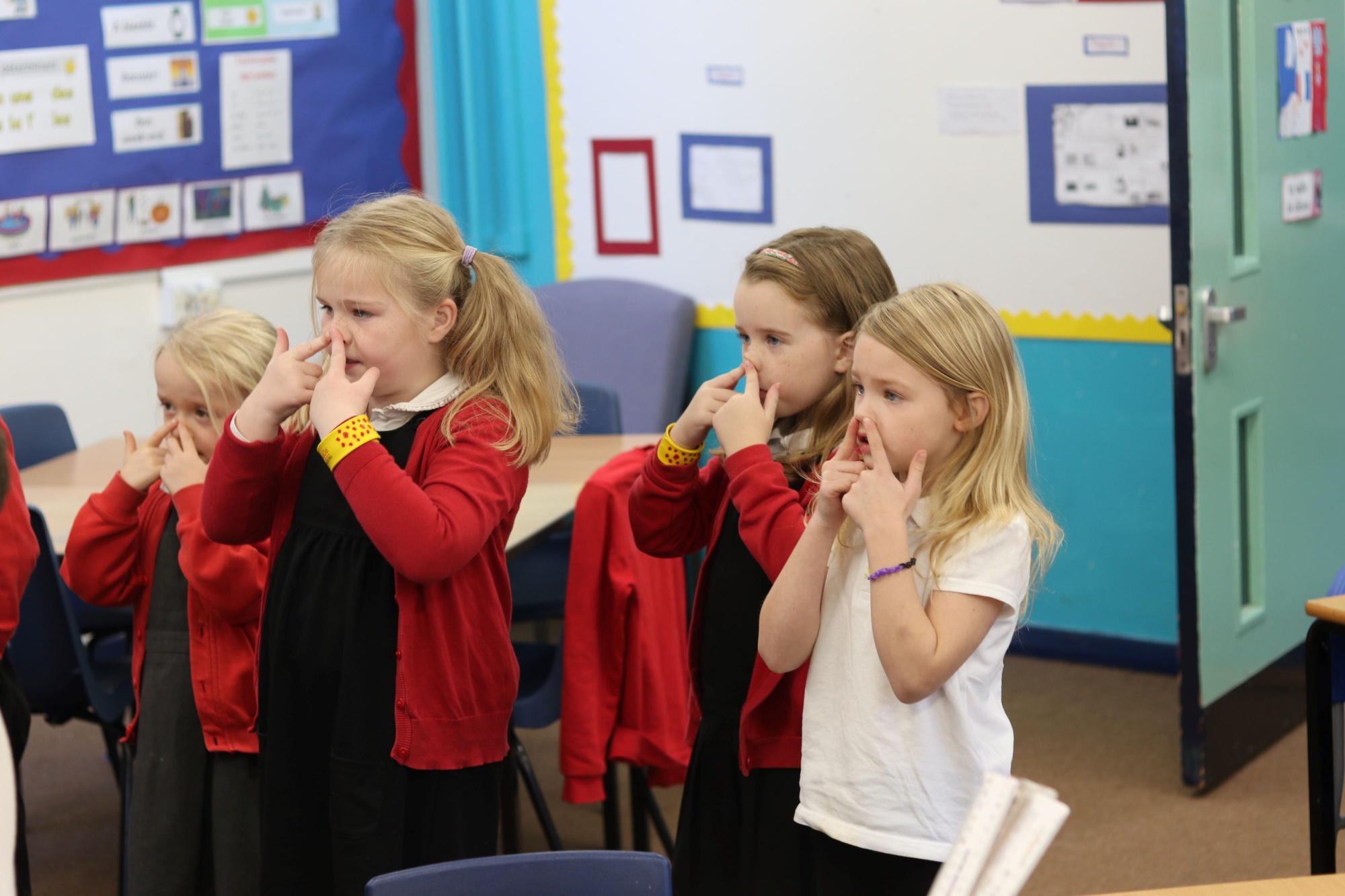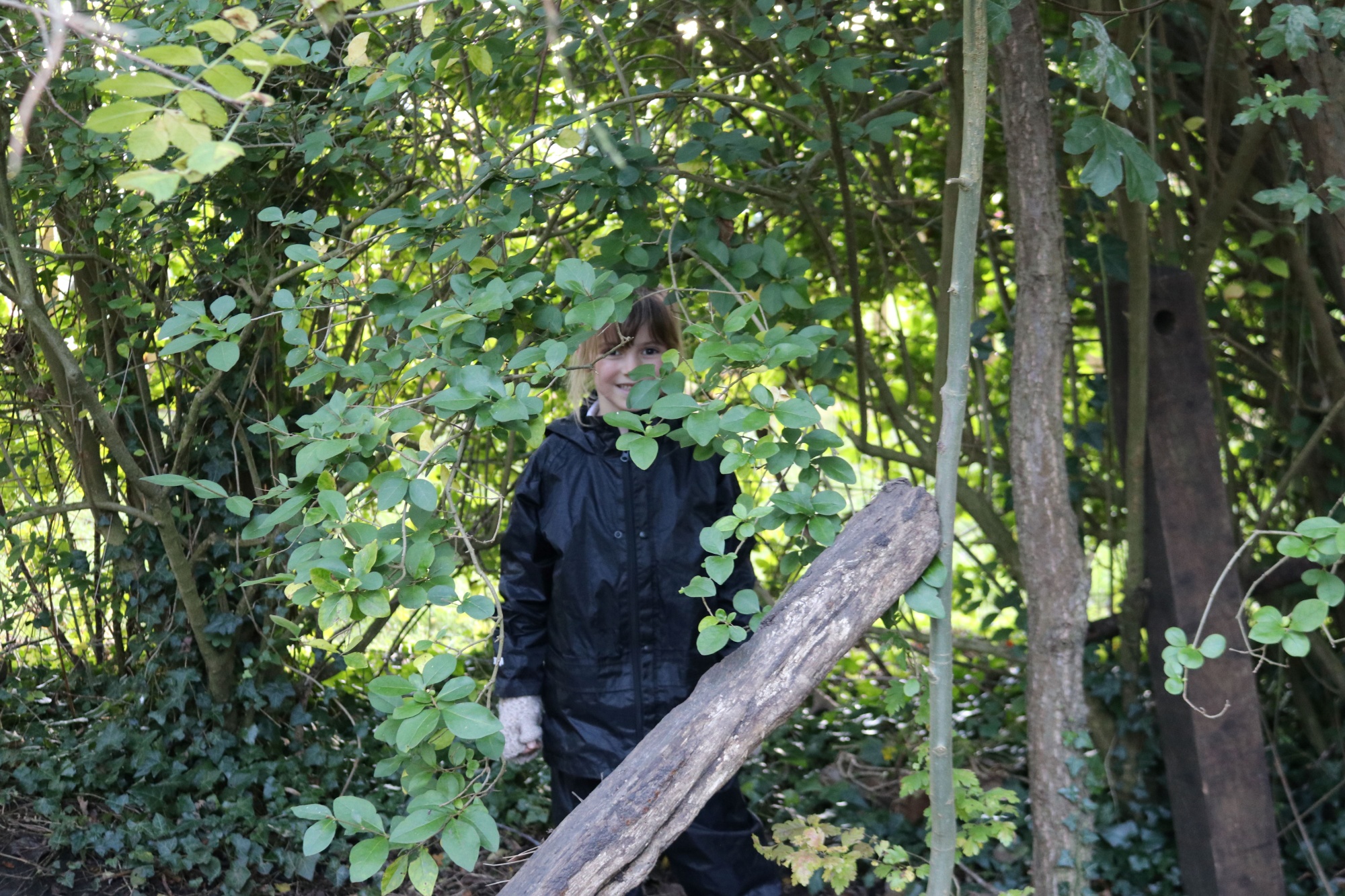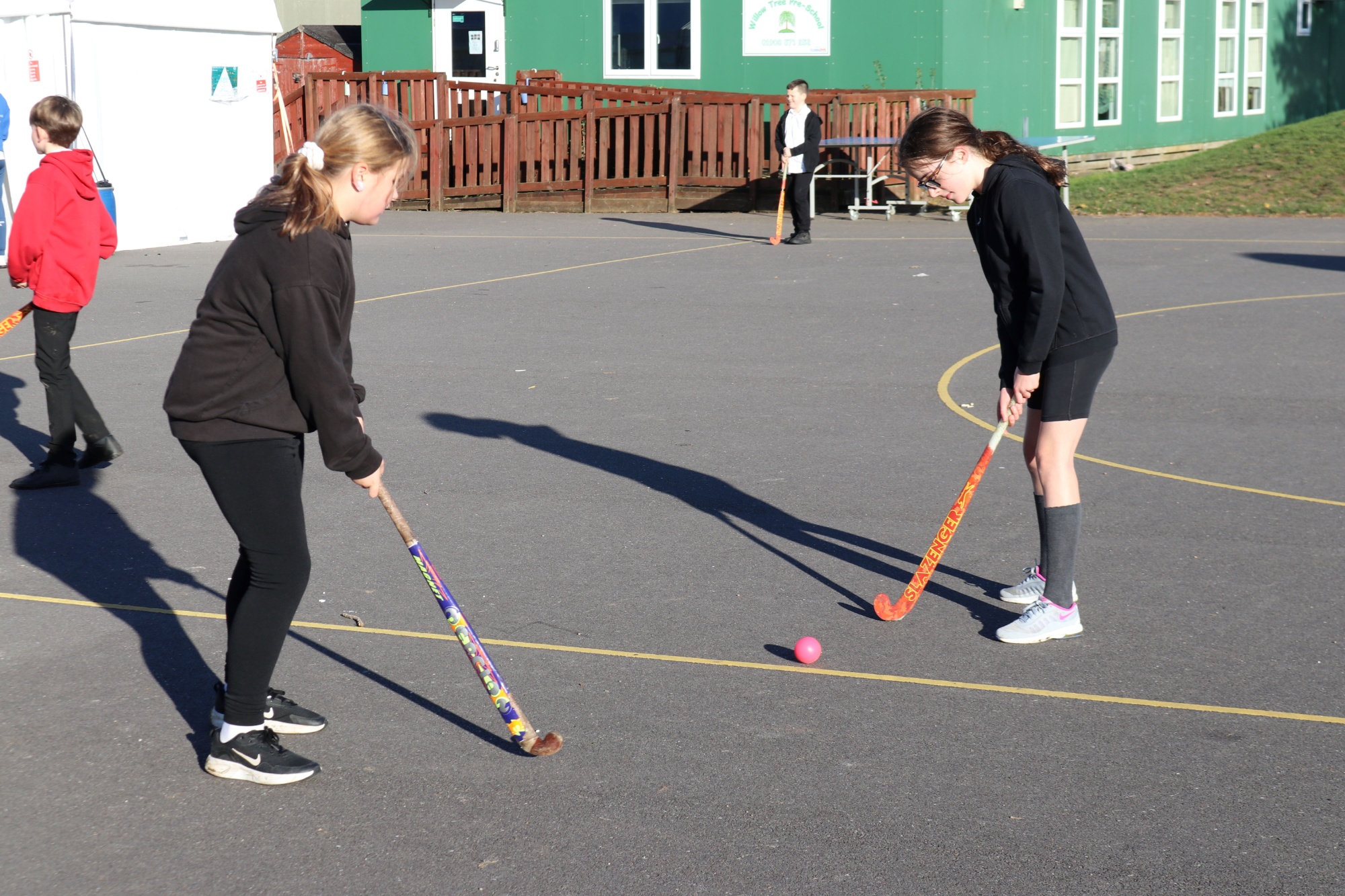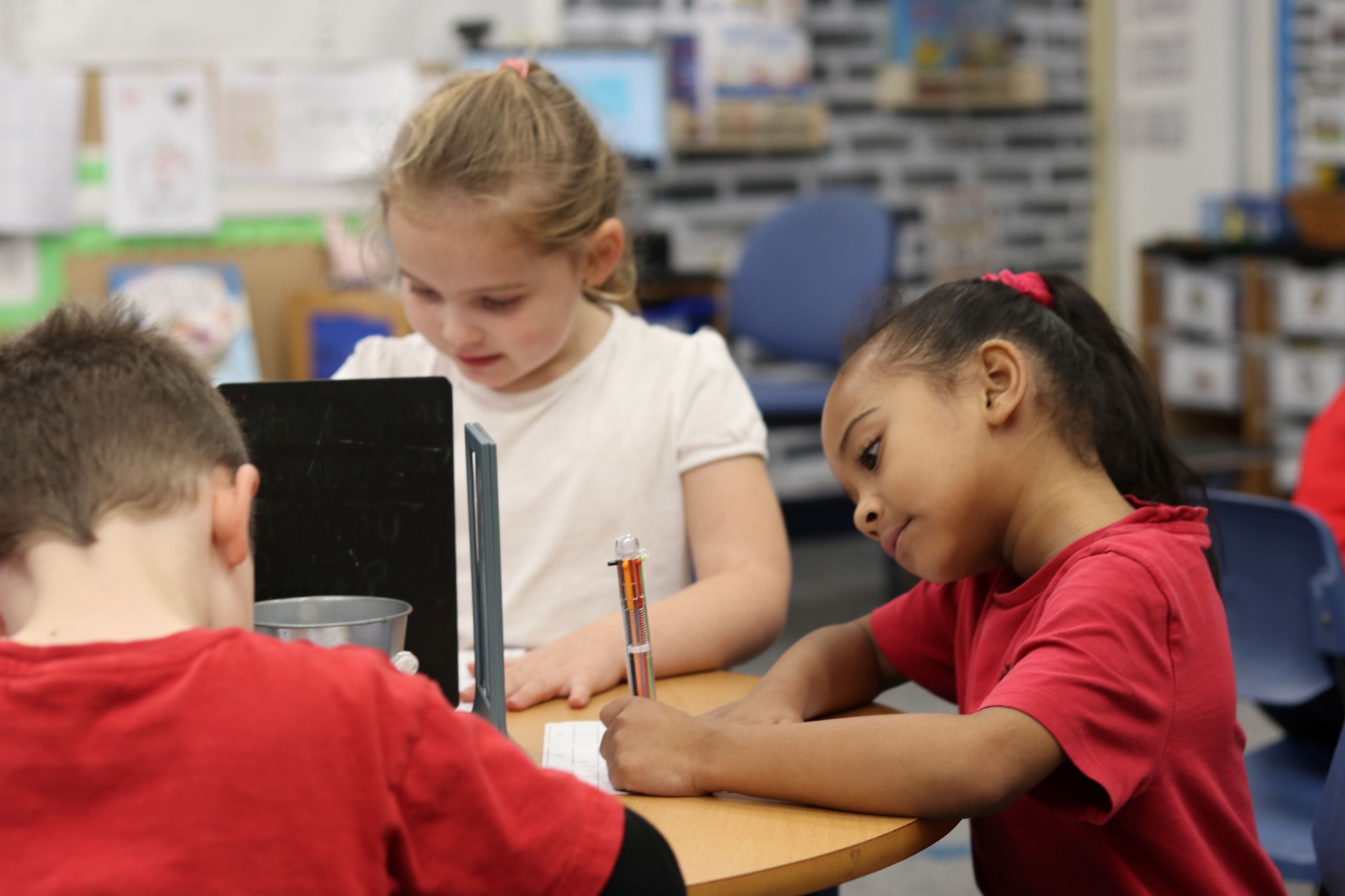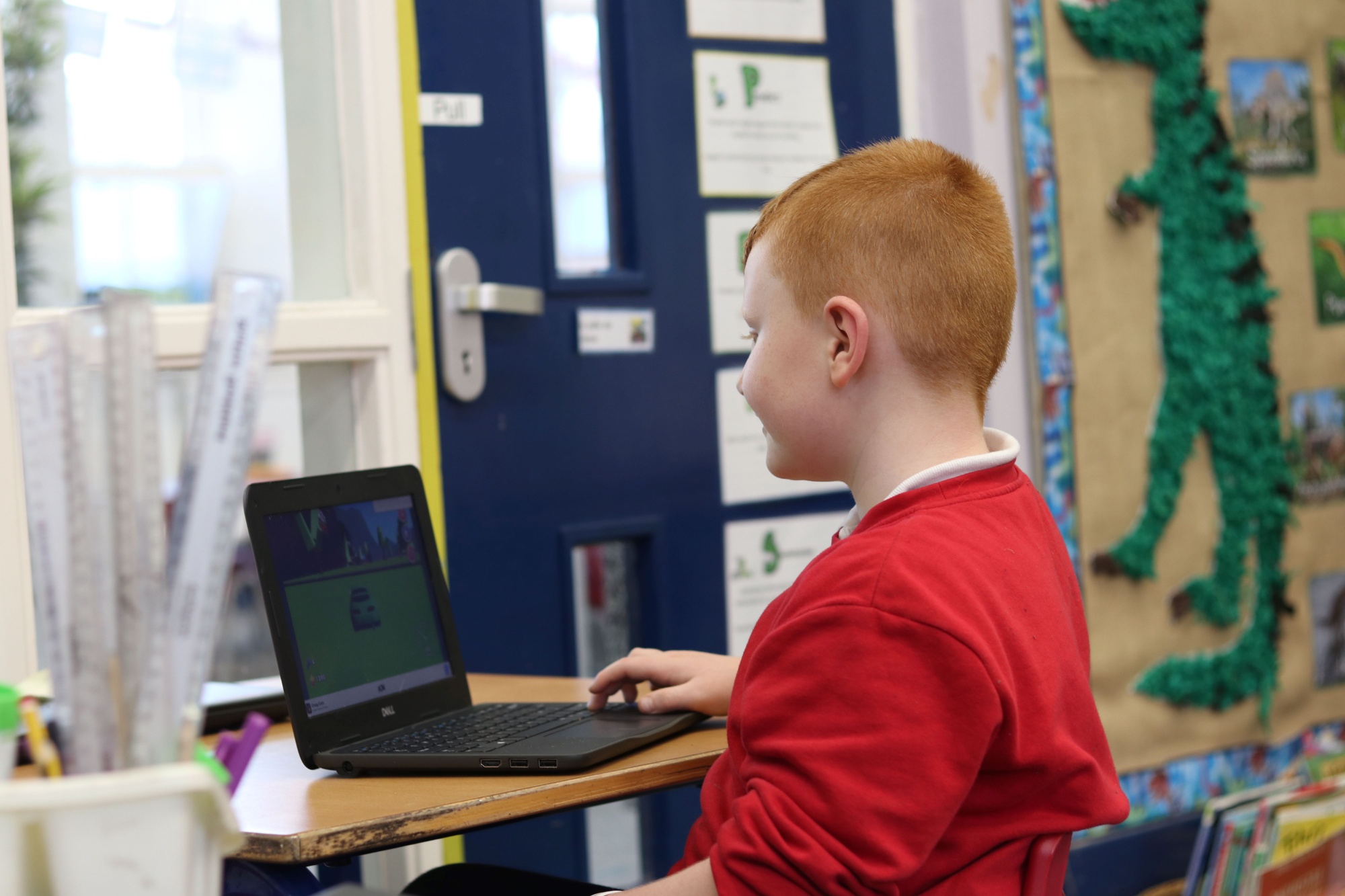French
Frequency of sessions: Sessions in KS1 are 20 minutes long every week. In KS2, lessons are largely 30 minutes long every week, in year 6 lessons are 40 minutes long every week.
Duo Lingo and Salut provide a wealth of opportunities to support the progression of skills. The lessons are designed to motivate children and are mainly practical in focus. They have clear, achievable objectives and incorporate different learning styles. SEND children have access to the curriculum through variation of task, grouping or support from an adult.
French lessons provide a variety of sources to model the language, use games and songs to maximise enjoyment and make as many connections to real-life situations as possible. Lessons focus on speaking and listening. However, when appropriate, children record written work informally in books which are passed through the years and become a portfolio of their learning. This then will be passed on to the secondary school.
In KS2, each class has a timetabled lesson of at least thirty minutes per week. Foundation Stage have 15-minute sessions to share a story, song or rhyme. KS1 build up from 15 minutes to 30 minutes. French can also be revisited in short sessions throughout the week to consolidate knowledge and ensure new language is retained.
Frequently Asked Questions
1- What decisions have been made about the curriculum in your subject?
The school has a French native teacher that will teach across all year groups in KS1 and Ks2s. We are using a program called “Salut” that provide games and song to support the curriculum. The French teacher has created a curriculum that will provide a wide range of opportunities to learn how to communicate in French in different subjects of life and about the French culture. In KS1, we will learn a theme vocabulary per term and we will extend that learning in KS2 by writing sentences, have a conversation, listen to stories.
The objective is that all pupils will develop an interest and curiosity about France and the French language , finding it enjoyable to learn.
With a high white British cohort (currently 80%), it is important for us to provide a rich and diverse curriculum that ensures that are children are well-prepared for the world beyond Deanshanger and are increasingly aware of other countries, cultures and religions. Developing cultural capital and constantly pushing aspiration are very important.
2- How has the subject curriculum been adapted to meet our needs?
Since starting French teaching at the school in 2021, I have adjusted my teaching strategies and the curriculum quite substantially. I have created a curriculum that will teach children Early French in KS1 by learning vocabulary on different themes and extend it to Intermediate French in KS2 by by introducing grammar and starting to build simple sentences in Years 3 and 4 and by progressing in years 5 and 6 to making more complex sentences and using all our previous knowledge to create role play and being more fluent in speaking French.
Children will acquire, use and apply a large amount of vocabulary, skills and grammar knowledge organised around age-appropriate lessons. Units will increase in level of challenge.
The curriculum is building towards being able to listen, speak, read and write in French and to have a good French knowledge to start KS3 French in secondary school. The curriculum is adapted to every child as we all go through the vocabulary and worksheets and we do games to make sure that everyone is included in the activity. Children are in teams for games most of the time, so they can all exchange their knowledge.
I am now happy that the curriculum allows the children to gradually rehearse and consolidate appropriate learning that builds naturally, starting with basic introductions and greetings that will allow children to have a start of a conversation with French people and then we will learn about different subjects in life such as ordering at a restaurant, presenting family, school life, and also learning about the French culture by celebrating Bastille day on the 14th of July, the Tour de France, Christmas, Epiphany...
We are also having Zoom calls with a French class in Brittany in France. Children on both sides are enjoying the exchange with other pupils and sharing their experience of a day at school and learning about different cultures.
3 - How do you know your curriculum is working?
I can see a very strong and rapid improvement in the children’s acquisition of the French language. Across the school the children wow me with their attitude toward learning and trying to speak French even outside of the French lesson. This is very noticeable in the levels of engagement in their recorded work, the enjoyment of doing games and trying their best.
External observations have commented on the high levels of engagement, the ever-growing confidence of the children.
Across the school, we hold subject elevation groups whereby the children are asked to speak about a different area of the curriculum to support our growing understanding of their feelings towards the subjects and the retention of their knowledge. These sessions have been really valuable in other subjects and as a result, we will be planning one shortly for us to understand the children's voice – do they feel they are making progress? What are they most proud of? What supports their solid learning? What strategies are not so helpful? etc
4 – What has been the impact of lockdown etc on the subject and what positive examples can we share about the subject and its remote delivery?
During lockdown the class teachers did deliver some basic French sessions. Lessons have been learnt as a result of this and have been incorporated into teaching strategy. Lessons can be taught via Zoom and the French teacher has included home learning tasks that can be share with students.
5 - What are the strengths of your current subject curriculum?
It is being taught by a strong member of staff with French as their first language. In this way, the build of skills, knowledge and understanding and very importantly, the accent, is authentic and provides an excellent model for the children.
Where possible and appropriate, we have made links with other schools to provide a real opportunity for the children to not only practice their French language skills but to also learn more about French culture. We recently had a Zoom session with a primary school in France. This special opportunity for our Year 2 children provided great enthusiasm from children as they learn about a French school day, they asked lots of questions.. We have plans to set this up with every year group at least once a year and also add on letter writing with our KS2 children.
6 - What are the areas of the curriculum that might need development?
The curriculum is new so it might need adapting to make sure children have a great knowledge on a subject before we move to the next one. We need to be more consistent with our link with the French school, as it is providing a great opportunity for the children to share different culture.
Over time we expect to see a greater differentiation of skills across the school as the impact of the specialist teaching really embeds.
7 - Leading professional development, providing guidance and support to colleagues.
Unlike other subjects in the school (with the exception of music), French is taught by a specialist teacher. This decision was made recognising that French was previously a developing subject for the school.
Having said this, although we have a specialist teacher, every session supports the growing skills, knowledge and understanding of the class teachers and LSAs, as they are in the classroom too. Feedback from staff has been very positive as modelling the sessions in this way to them, is improving their own French knowledge, skills and understanding.
The French lead has visited a local school and shadowed the French teacher in that setting and a recipricated visit is being organised. This provided invaluable opportunities to see games and subjects being taught to be competently used within the sessions to drive standards through fun and engaging sessions.
The French teacher has also done some training in French conjugation. ( SPAG).
8 – How is the subject resourced?
We are using a program called “Salut” to help us with interactive games and songs. The French teacher is using French story books and activity sheets from the French curriculum, French books, twinkl.
Each subject has a vocabulary sheet, flashcards and activity sheets with different level of difficulties, so children can choose to challenge themselves.
9 – What do you expect external visitors see when they focus on the subject?
If any outside visitors came into the school and observed French sessions they would see a high level of participation, repetition and recall, games, some recorded learning in French books and, by visiting classes across the school, a growing build-up of French knowledge, skills and understanding - each year group is built upon prior learning.
10 – How does your subject support children with SEND, PP and the most able?
We recognise that children are in very different places with their use of the French language – I ensure that I incorporate the needs of all children and repeat sessions and deliver them in different ways in order to support a strong foundation of knowledge – knowledge which is constantly reviewed and recalled.
Children with additional needs are supported by being included in group games, adapting the activity sheet to their abilities, supporting them in recording in their book.
There are children in each group that are very able in French, sometimes this is because French is their first language or one of their family is French speaking. For these children I provide them with challenging activities and ask them to support me with the lesson, by asking them to extend sentences.
